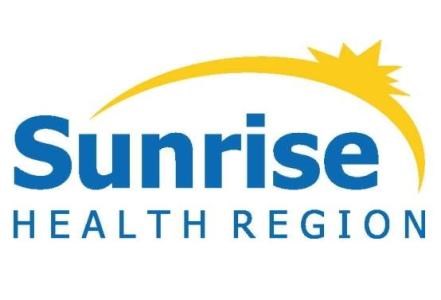As summer holidays approach and people are spending more time outside connecting with nature, Sunrise Health Region would like to remind the public to be aware of animals that may be infected with rabies, an often fatal disease of the nervous system caused by a virus.
Several confirmed cases of rabies, in the wild and domestic animal populations, have been reported throughout the Sunrise Health Region. Rabies in Saskatchewan most commonly occurs in wild animals such as skunks, bats, and raccoons but may also be found in domestic pets such as dogs and cats. Farm animals such as cattle and horses can also carry the disease.
Exposure to rabies is considered to have occurred when the saliva or other potentially infectious material of a rabid animal is introduced into a person through a bite or scratch or by the spraying of saliva or other infectious material on the mucous membranes of an individual. Signs and symptoms of rabies can occur days, weeks or months after exposure. Signs include rapidly progressive central nervous system symptoms such as difficulty swallowing and seizures.
Animals with rabies show a variety of signs including depression, paralysis which might occur in a number of areas including the face or neck, hiding, and wild animals losing fear of humans. Other signs of rabid animals are those that only come out at night being seen during the day and aggressiveness which may include attacking objects or other animals.
To minimize your risk of contracting rabies:
• treat unknown or wild animals with caution
• do not approach or touch a wild animal, especially if it appears to be sick
• teach children not to touch or feed animals that they do not know
• have your veterinarian vaccinate your pets (your veterinarian will advise you on the frequency of vaccination)
“If you or someone you know is bitten by an animal that you suspect may have rabies, flush the wound with lots of soap and water, and seek immediate medical attention, even if you think the bite is minor,” says Dr. Ashok Chhetri, Medical Health Officer with Sunrise Health Region. “Individuals exposed to rabies will have their level of risk determined by their physician. The doctor will consult with a public health official to determine if preventative treatment is necessary.”
For information on animal bites, contact Sunrise Public Health office at 306-786-0600 or the Saskatchewan HealthLine by dialing 811. If you are bitten by an animal, immediately contact your nearest emergency medical centre for assessment.
If you suspect that your pet or livestock has been infected by rabies, contact your veterinarian or the Rabies Risk Assessment Veterinarian (RRAV) at 1-844-7-RABIES (1-844-772-2437) or by emailing [email protected]. Keep the animal in a controlled environment (i.e. kennel or pen) until the incident has been fully investigated. It is important that the animal is not euthanized prior to completing the investigation. If the animal dies before the investigation is complete, do not damage the head or bury the animal, as a sample of brain tissue is required for testing. Contact your vet, the RRAV, or local Public Health office.
If you encounter a potentially rabid, wild animal contact your local conservation officer or call the Ministry of Environment’s toll-free line at 1-800-667-7561. Additional rabies information can be accessed online at www.saskatchewan.ca/residents/health/diseases-and-conditions/rabies.



